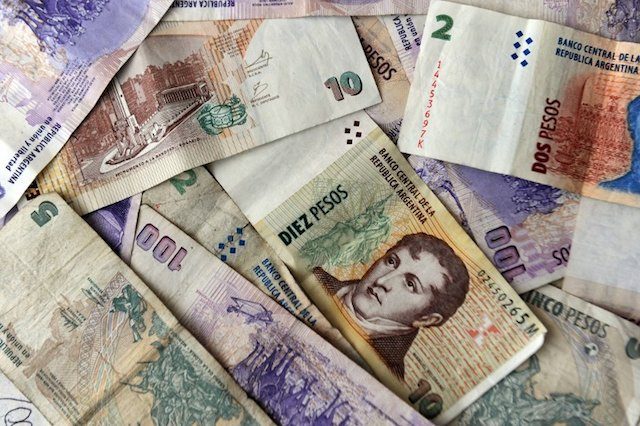SUMMARY
This is AI generated summarization, which may have errors. For context, always refer to the full article.

BUENOS AIRES, Argentina – Argentina’s economy minister flew into New York on Tuesday, July 29, for last-ditch talks to resolve a dispute with hedge fund creditors that has pushed the country to the brink of default.
Economy Minister Axel Kicillof threw his weight behind the talks after Argentina got a boost in its fight against so-called “holdout” hedge funds from others bondholder who appealed for more time.
Argentina has until the end of Wednesday, July 30, to resolve its dispute with the holdouts, whose refusal to accept a write-down on the debt it defaulted on in 2001 has pushed Latin America’s third-largest economy to the brink of a new default.
Shortly before Kicillof arrived at the talks, which are being brokered by a US court-appointed mediator, a group of holders of euro-denominated “exchange bonds” asked New York District Judge Thomas Griesa to put a stay on his ruling in favor of the hedge funds.
The ruling bars Argentina from servicing its restructured debt without also paying the hedge funds the full $1.3 billion it owes them.
But Argentina says paying the holdouts could expose it to claims for up to $100 billion from creditors who had agreed to take a 70% haircut after the 2001 default.
In a petition to the court, the bondholders said they were willing to drop the so-called “RUFO clause” – short for Rights Upon Future Offers – that entitles them to equal treatment with the holdouts.
But they said the judge would have to suspend his ruling long enough for that to be arranged.
“A stay will promote and encourage a global settlement,” they said.
A default, they warned, “would undo much of the work this court has accomplished over the last 10 years and extend litigation here and around the world for years on end.”
That was a welcome development for Buenos Aires, which has insisted the only possible solution is for the judge to suspend his ruling.
Meanwhile, International Monetary Fund chief Christine Lagarde said an Argentine default would mean the mechanisms that allow struggling countries to restructure their debt would “have to be reviewed.”
After the 2001 default, Argentina negotiated its way back to solvency using what are known as collective-action clauses, which traditionally allow a majority of creditors to agree to a debt restructuring when a country is facing a crisis.
In Argentina’s case, 92% of creditors agreed to a write-down.
But Judge Griesa’s ruling has demonstrated the power of a handful of holdouts to scuttle such deals, leaving Argentina scrambling to bridge the gap between the expiry of the RUFO clause at the end of the year and the Wednesday deadline to make a $539-million payment on its restructured bonds.
‘Militant solidarity’
Analysts have warned a default would deepen the economic malaise gripping Argentina, exacerbating unruly inflation and perhaps forcing another devaluation of the peso, already devalued 20% in January.
A default would also likely prolong Argentina’s isolation from international capital markets, which it has been locked out of since 2001.
But unlike in 2001, when the default plunged the country into crisis and turned the Argentine presidency into a revolving door, President Kirchner has managed to make the current debt standoff a political weapon.
Her government has branded holdouts NML Capital and Aurelius Capital Management “vulture funds” for buying up defaulted Argentine debt at discount rates, then suing for full payment.
That rhetoric has found a receptive audience both at home and around Latin America.
The government “presents the issue as a matter of choosing between your nation or the vultures, and that puts the opposition in a difficult position,” sociologist Ricardo Rouvier of consultancy Homonima told Agence France-Presse.
Kirchner has meanwhile used the dispute to build bridges with fellow Latin American leftists, many of whom who have joined her calls for reform of the global financial system.
At Tuesday’s Mercosur summit, Venezuelan President Nicolas Maduro said the five-country bloc had expressed its “militant solidarity” with Argentina.
“This is damaging not only to Argentina, it is damaging to all the countries of the south,” he said. – Rappler.com
Add a comment
How does this make you feel?
There are no comments yet. Add your comment to start the conversation.